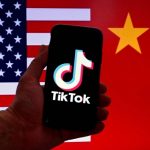3Com Corporation, a maker of networking hardware and software, will be sold to affiliates of private equity firm Boston-based Bain Capital Partners LLC for $2.2 billion and taken private. The cash deal will also gives Huawei Technologies, China’s largest manufacturer of telecommunications equipment, a minority stake in 3Com. Shareholders will receive $5.30 in cash for each share of 3Com stock, or a premium of about 44 percent over the stock’s $3.68 closing price on Thursday.
Those in Information Technology field will know who 3Com is. The company which has more than 6,000 employees in over 40 countries and annual revenue of $1.3 billion was the darling stock during the late 1990s technology boom. Once 3Com’s stock price was above US$100 per share but plunged to dust after the bust.
3Com previously teamed up in a networking product “Joint-Venture” called H3C (short for Huawei 3Com) but 3Com bought out Huawei’s 49 percent stake for $882 million in November 2006. It is not known how large of a minority stake that Huawei would have in 3Com after the deal is completed, but said that information would be made public in coming weeks.
3Com would be required to pay a break-up fee of $66 million if it backs out of the deal, while Bain would pay at least $66 million and up to $110 million if it backs out, depending on the circumstances. In Malaysia Huawei Technologies together with H3C has their presence respectively in Kuala Lumpur.

|
|
September 28th, 2007 by financetwitter
|


|

|

|

|

|

|
Comments
Has anyone wondered how a major PE firm got the idea to buy a struggling tech firm like 3Com? NewsVisual had an interesting article on this topic http://www.newsvisual.com/newsvisual/2007/09/ties-between-3c.html . It’s possible that this deal came about because of corporate connections, particularly through Stanford University.




























Has anyone wondered how a major PE firm got the idea to buy a struggling tech firm like 3Com? NewsVisual had an interesting article on this topic http://www.newsvisual.com/newsvisual/2007/09/ties-between-3c.html . It’s possible that this deal came about because of corporate connections, particularly through Stanford University.